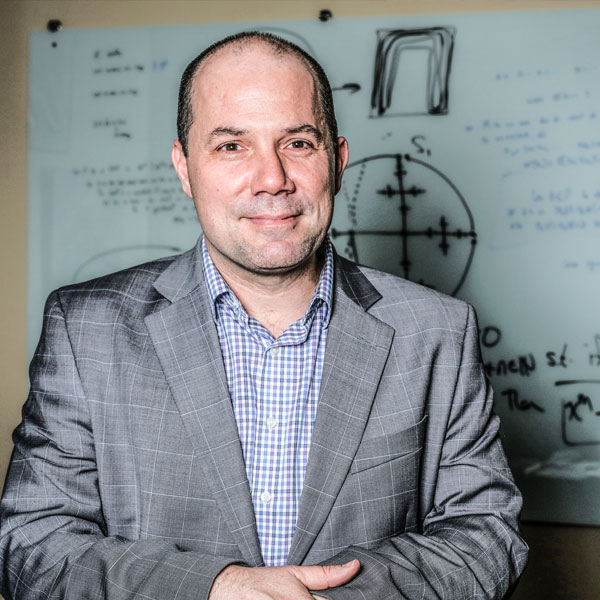Brian Raines
Professor of Mathematics
Associate Dean for Research & Strategic Planning
College of Arts and Sciences
Faculty Senate Chair, 2019-20
To me, Illuminate and President Linda A. Livingstone’s vision for making Baylor a preeminent Christian research university is incredibly exciting. The challenge, though, is enormous. We have earned an admirable reputation as a school that excels at training undergraduates. Now, we are pursuing the ambitious goal of being recognized by the Carnegie Foundation as an R1 university, a school among the top-tier of research universities. I love this goal. The Carnegie ranking is not an opinion poll; it is based on merit alone.
I came to Baylor in 2002 at the launch of another research initiative: Baylor 2012. Like many of the faculty on campus, I was excited by the renewed commitment to research. I am a research mathematician, and I work on problems related to chaotic systems using techniques from topology, a branch of pure mathematics. Many of the open problems that my colleagues and I work on take months or years to solve. But, like any pursuit of knowledge, once we understand how something works, what makes it tick, we are left with wonder and usually more questions.
We are redoubling our efforts on the academic side of the University. Achieving R1 status will likely take an enormous infusion of resources and effort. Like solving an open problem in mathematics, achieving R1 will probably not happen very quickly. But we can use this goal to help inform our current strategic decisions. Instead of asking, “Will this make us a better Christian university?” we now ask, “Will this make us a better Christian research university?”
"Instead of asking, 'Will this make us a better Christian university?' we now ask, 'Will this
Investing heavily in the research enterprise also will benefit our students because it will increase the value of a Baylor degree. Many Baylor undergraduates engage as active participants in research on campus. Each semester, we have dozens of undergraduates working in labs or one-on-one with faculty in departments ranging from theater arts to physics. Each summer, many undergraduates stay in Waco to work on research projects with faculty mentors. Engaging in this sort of work leads to a close mentoring relationship, which is one of the strengths of a Baylor education.
I spend a lot of time directing students in research. I usually have a few doctoral students, and I also spend time mentoring many undergraduates in research. Usually they approach me singly or in pairs to ask about my work. This leads to me offering a small class on a specialized topic — such as symbolic dynamics or knot theory — after which we can begin working together on a new piece of mathematics. The experience is rewarding for me and the student. We work on research together, and we spend time discussing career and life goals.
A few of my undergraduate research students have become mathematicians, but most find their calling in another profession. Nevertheless, having a meaningful mentoring relationship and a true research experience is a valuable component of their Baylor education.
For me, Baylor’s commitment to becoming a preeminent Christian research university is inspiring, and striving toward this goal benefits our students and our alumni. Moreover, it leads us to focus on the central work that defines our reputation among peer universities — our research.
